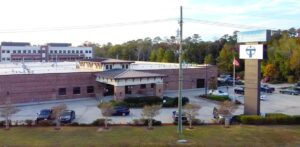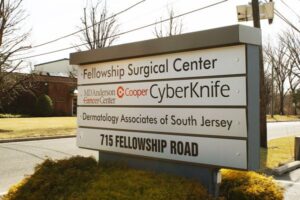 Physician-owners often ask a key question: Can I sell my ambulatory surgical center property without giving up control of my ASC operations? The answer is yes—with the right structure in place. At ASC Realty Advisors, we help clients understand how to sell an ambulatory surgical center property while continuing to run the practice, manage staff, and make day-to-day decisions.
Physician-owners often ask a key question: Can I sell my ambulatory surgical center property without giving up control of my ASC operations? The answer is yes—with the right structure in place. At ASC Realty Advisors, we help clients understand how to sell an ambulatory surgical center property while continuing to run the practice, manage staff, and make day-to-day decisions.
Many physicians worry that selling the property means losing independence. That doesn’t have to be the case. Through a strategy called a sale-leaseback, you can sell the real estate while remaining the operator under a long-term lease. This approach allows you to unlock equity, strengthen your financial position, and still maintain control.
Step 1: Understand What Investors Want
When we guide clients through the process, we start by identifying what real estate investors are looking for. Investors want a stable, long-term income stream. That income comes from your lease. If you’re an active physician-owner with a strong history of operations, you’re exactly the type of tenant that investors value.
Investors are not looking to take over the business. They want predictable rent payments and reliable occupancy. A clean, well-structured lease with a solid tenant often holds more value than the building itself. Our team helps make your property more appealing to these buyers by focusing on what matters most to them.
Step 2: Evaluate Your Lease Terms
Your lease structure has a direct impact on the final sale price. Lease length, rent rate, renewal options, and escalation terms all play a part. If your lease is short or unclear, it can reduce buyer interest. On the other hand, a market-rate lease with renewal options and defined responsibilities increases value.
We conduct a full lease analysis to identify gaps, outdated terms, or potential changes that could make the deal stronger. Sometimes, adjusting rent to reflect current market trends or adding clear language around maintenance responsibilities can make a big difference in how the property is received by investors.
ASC Realty Advisors works with you to revise or create lease terms that align with your goals and market expectations.
Step 3: Structure a Sale-Leaseback That Works for You
In a sale-leaseback, you sell the property to a real estate investor, but remain as the tenant. You keep full operational control of the ambulatory surgical center. You continue to manage your team, deliver care, and operate your business as usual.
The key benefit is that you access the capital tied up in the building. Many physicians use these funds to expand services, invest in new technology, or support retirement planning. Because you remain in the space under a lease, you also maintain a stable environment for patients and staff.
Our team handles every part of the transaction. We evaluate your lease, value the property, and connect you with qualified buyers who specialize in medical properties.
Step 4: Position Your Property the Right Way
Selling the real estate portion of an ASC is not the same as selling general commercial property. Medical properties require a more targeted marketing strategy. At ASC Realty Advisors, we create a Confidential Information Memorandum (CIM) that outlines the strength of the tenant, the stability of the lease, and the long-term value of the investment.
We also highlight the property’s role within the healthcare community and its growth potential. Our outreach focuses on buyers who understand the unique dynamics of physician-owned centers and who offer competitive terms.
Because we work exclusively on the sell-side and have completed more than 500 ASC real estate transactions across 40 states, we know how to find the right buyers and get deals done quickly and effectively.
Real Example: Fellowship Medical Center (New Jersey)
 Fellowship Medical Center is a real-world example of how a sale-leaseback can benefit physician-owners. In this case, multiple physician groups remained in control of their operations after the sale. They signed a long-term lease and retained full clinical independence. The deal also included tenants like MD Anderson Cancer Center, which added even more value to the transaction.
Fellowship Medical Center is a real-world example of how a sale-leaseback can benefit physician-owners. In this case, multiple physician groups remained in control of their operations after the sale. They signed a long-term lease and retained full clinical independence. The deal also included tenants like MD Anderson Cancer Center, which added even more value to the transaction.
Our team structured the lease to appeal to real estate investors while supporting the long-term needs of the medical groups. The sale provided liquidity, stabilized lease terms, and allowed the physicians to focus on delivering care—not managing real estate.
Post-Sale Support That Protects Long-Term Goals
After the transaction closes, we continue to work with our clients. We assist with lease renewals, succession planning, and facility expansion. For many physician-owners, the sale is just one part of a larger plan. We offer long-term advisory support so clients don’t have to manage these next steps alone.
Selling the property can be a smart financial decision—but only if the terms protect your interests and match your career goals. That’s why our work doesn’t end at closing.
Selling Doesn’t Mean Giving Up Control
If you’re wondering how to sell an ambulatory surgical center without losing control of your practice, the answer lies in careful planning and the right team. With a sale-leaseback, you can access the equity in your property while continuing to run your ASC on your terms.
At ASC Realty Advisors, we specialize in helping physician-owners plan and complete strategic sales that support both business and personal goals. We work for sellers only, and we tailor every step of the process to your specific situation.
If you’re thinking about selling your ASC real estate but want to stay in control of operations, reach out for a confidential consultation. We’ll help you understand your options, review your lease, and build a plan that works for you.
